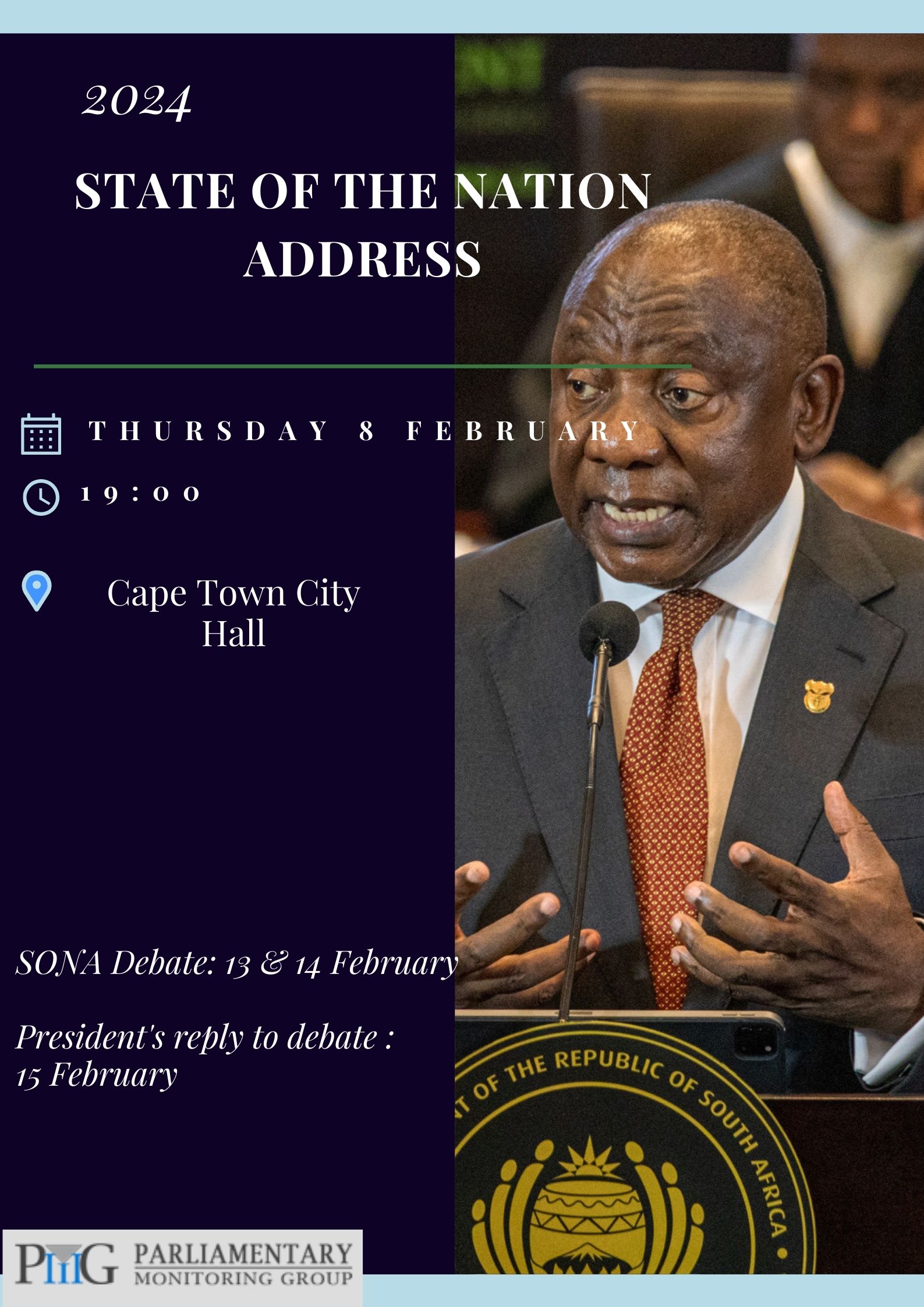The Speech: #SONA2024

It’s one of the most important speeches that the President delivers in any year. With a prime-time TV audience, it is a tremendous PR opportunity for the President to lay out his agenda for the year and report on his administration’s progress. This is an election year so it is an opportunity to do a bit of campaigning and there will be a second address after the elections.
Read All State of the Nation Addresses
#SONA2024: All You Need To Know
The speech is the result of collaboration among a large number of officials in the government - including policy advisors, researchers, and speech writers. The Forum of Director-Generals, the ANC's January 8th Statement, NEC Lekgotla, and the Cabinet Lekgotla play a central role in shaping the speech. Traditionally, meetings are also held with business leaders, labour, and civil society before the event.
During this process, an overarching theme for the address is established. Following the input received, the writing team is tasked with grounding the speech in a list of political realities and fiscal constraints. It will prioritise certain items and drop others.
Despite the weeks of drafting, there is still tinkering and fine-tuning happening up to the last day.
Typically, the speech builds on previous speeches and commitments. Last year, the President highlighted four areas of concern that the government would be addressing urgently: the energy crisis, cost of living, unemployment, and crime and corruption.
The prose is characteristically dull and jargon-heavy as this is designed to be a sprawling, laundry-list type of speech.
Sometimes, the style of the speaker comes across in the speech in terms of the language used and delivery. Tonality, cadence, and energy are important.
Some Presidents go short and others long. Just like President Mbeki, President Ramaphosa’s speeches have averaged around 7000 words. They seldom go off-script.
The target audience consists of different constituencies, which include MPs, citizens, trade unions, business leaders, foreign investors, foreign governments, and credit rating agencies. The media and stakeholder groups will dissect every word and inflection carefully live and even days after, to make sense of what it all means for particular sectors.
Some argue that too much attention and meaning is ascribed to the speech when the public quickly forgets it. They describe the speech as hot air, platitudes, empty promises, and devoid of substance. Others point out that it sets the tone for the year. Memorability is probably the best way to measure the success of this type of speech and this is seldom achieved. Either way, the reaction from the gallery, the public (via social media, polling), political opponents, and the markets will be known instantly and will be a talking point for days after.
Many of the items included in the speech will never be accomplished – several ideas are long-term visions, while some proposals won't be successful or will be implemented progressively. Also, the facts and figures trotted out are not always true and can lack context. Africa Check has been fact-checking State of the Nation Addresses for several years. According to them, President Ramaphosa has a good track record as his statements are mainly accurate. Check here.
What about the main talking points for this year? The ANC January 8th Statement and this piece provide a useful preview.
The Presidency has also published an overview of the administration’s progress over the last five years.
At the best of times, this is a difficult kind of speech to give. This is even more so in a difficult climate where the challenges are numerous and severe.
About this blog

"That week in Parliament" is a series of blog posts in which the important Parliamentary events of the week are discussed.
We host the latest posts of this blog, written by People's Assembly. You can find more on PA's blog.
About this blog

"That week in Parliament" is a series of blog posts in which the important Parliamentary events of the week are discussed.
We host the latest posts of this blog, written by People's Assembly. You can find more on PA's blog.
